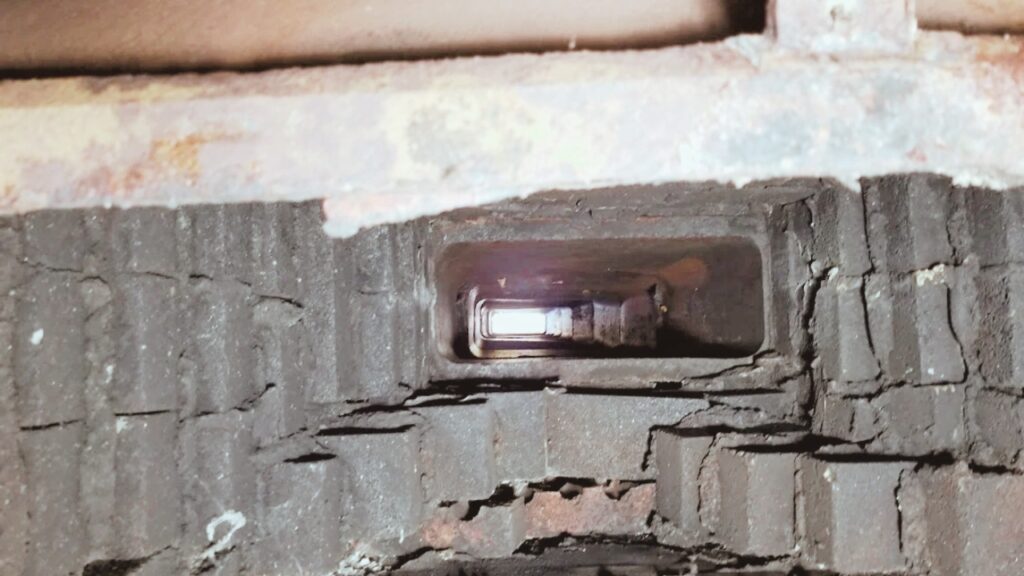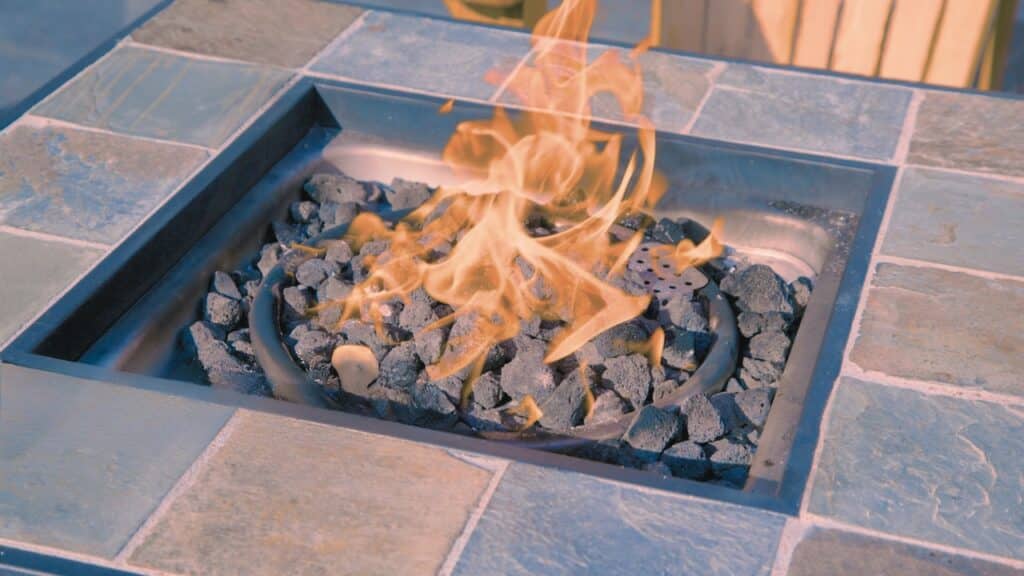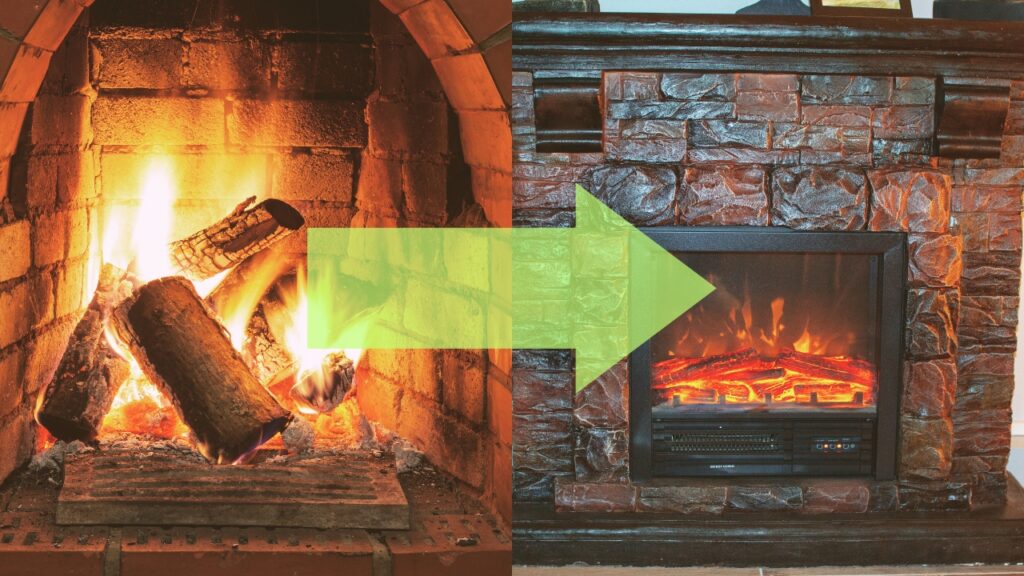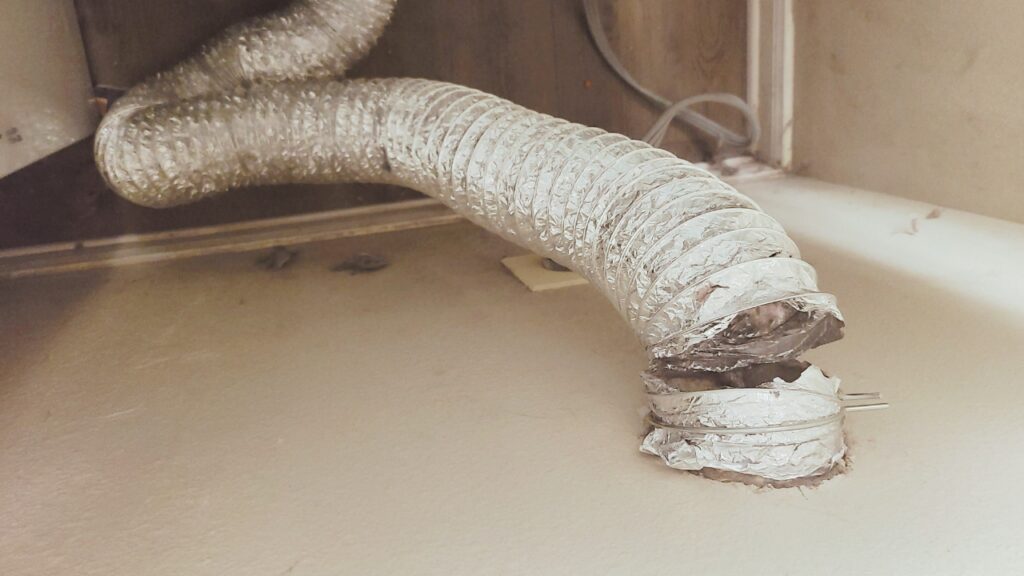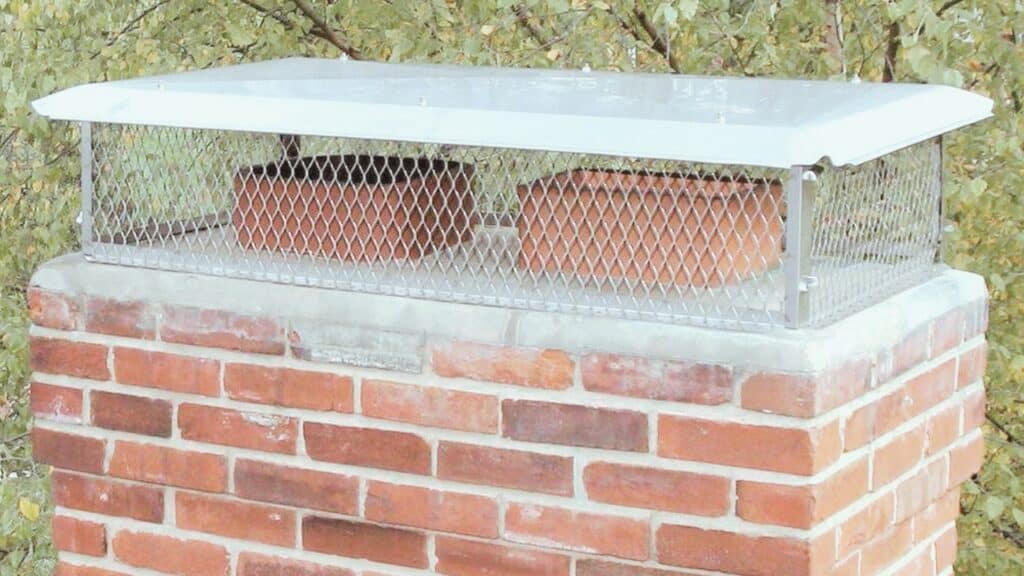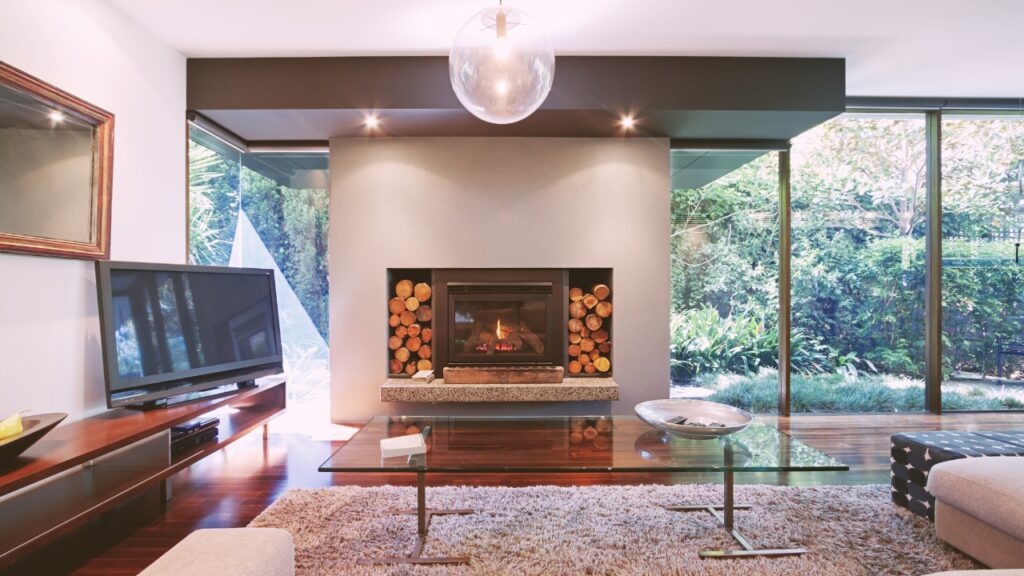When it comes to choosing a chimney for your home, you might find yourself contemplating between two options: a masonry chimney vs metal chimney.
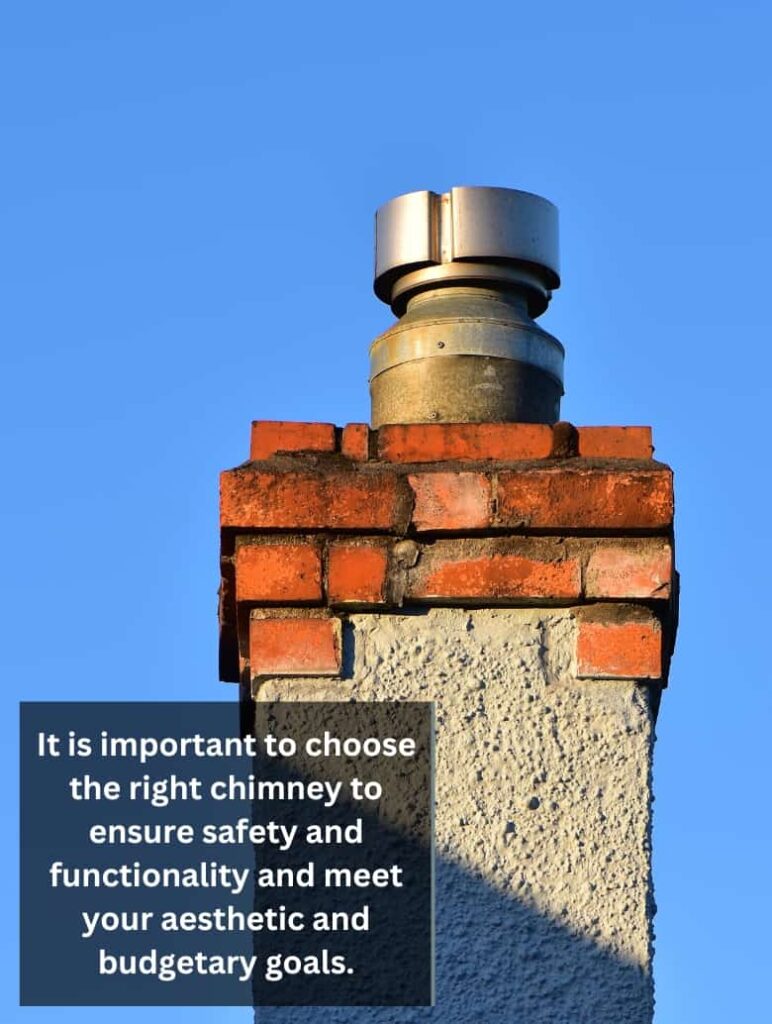
It is important to choose the right chimney to ensure safety and functionality and meet your aesthetic and budgetary goals. With the right information, you can keep your home warm, safe, and stylish for years to come.
What is the Difference Between a Masonry Chimney and a Metal Chimney?
Here are the main differences between masonry and metal chimneys:
Masonry Chimneys
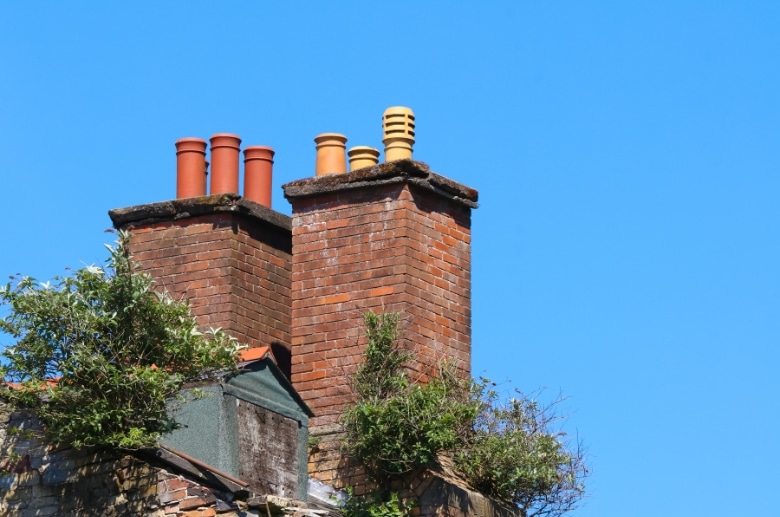
Masonry chimneys are built using brick, stone, or concrete blocks, making them durable and aesthetically pleasing. They are most commonly used with fireplaces but can also be used to vent other heating sources, such as furnaces or stoves.
Masonry chimneys are heavier than metal chimneys, so you need to make sure your house can support the extra weight. Ensuring the chimney’s structure is sturdy enough for your house is also important.
——
Do You Need to Hire Chimney & Fireplace Expert?
Get free quotes from qualified experts near you. No commitment required!
——
Advantages
Masonry chimneys offer several advantages over metal chimneys:
- Durability: If properly constructed and maintained, masonry chimneys can last up to 100 years. This is because the materials used in masonry chimneys are naturally resistant to weathering, corrosion, and rust.
- Aesthetic appeal: Masonry chimneys offer a classic, timeless appearance that enhances the overall look of a home. They can be built to match the home’s style and color, adding value to the property.
- Better insulation: The materials used in masonry chimneys provide natural insulation that helps to keep the heat inside the chimney and prevents it from escaping into the home. This can result in lower energy costs and increased comfort.
- High-temperature resistance: Masonry chimneys can withstand high temperatures without damage or degradation. This is important because high temperatures can occur during the combustion process and can damage or weaken a chimney if it is not designed to tolerate them.
- Structural integrity: When properly built and maintained, masonry chimneys have strong structural integrity that can handle the weight of the chimney and the forces of nature, such as wind and earthquakes. This means that masonry chimneys are less likely to suffer from cracks or collapse, which can be dangerous and costly.
Disadvantages
Masonry chimneys do have some downsides, including:
- High cost: Constructing a masonry chimney usually costs more than installing a metal chimney. The cost of materials such as bricks, mortar, and clay tiles is higher, and skilled masonry labor is required, which can further increase the cost. The foundation for a masonry chimney must also be deeper and wider than that of a metal chimney, further increasing the cost.
- Time-consuming installation: Building a masonry chimney can take a lot of time, as the process involves laying each brick by hand and waiting for the mortar to dry before continuing. A typical masonry chimney can take several days to complete, and the installation process may be affected by weather conditions, such as rain and extreme temperatures.
- Maintenance issues: Masonry chimneys require regular maintenance to keep them in good condition. Over time, the mortar between the bricks can deteriorate and crack, allowing water to seep into the chimney and cause damage. This can lead to costly repairs, such as replacing damaged bricks and mortar or rebuilding the entire chimney.
Overall, masonry chimneys offer many advantages, such as durability and aesthetic appeal. However, the high cost and maintenance requirements should be considered before investing in one.
Metal Chimneys
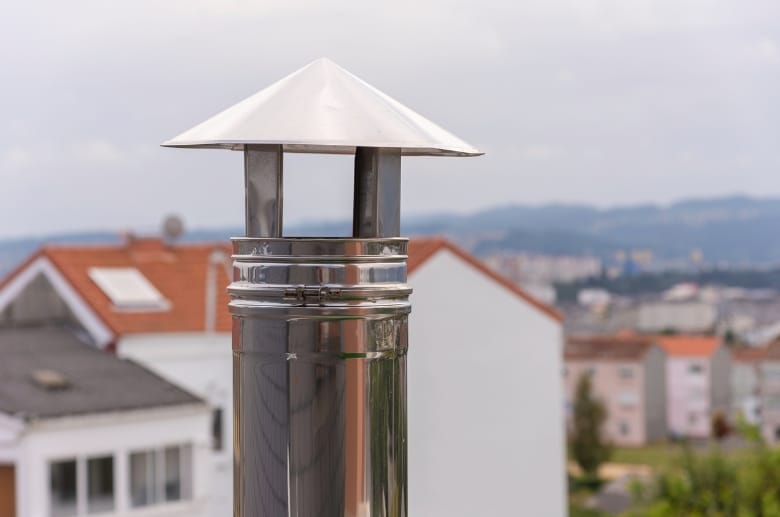
Metal chimneys are made from materials such as galvanized or stainless steel. They are most commonly used with wood-burning stoves but can also be used for other heating sources, such as furnaces. Regular metal chimney flue maintenance is crucial for ensuring the safety and efficiency of these systems.
One common mistake homeowners make when choosing a metal chimney is not ensuring that it’s properly insulated. This can lead to safety issues, as the chimney can get too hot and cause a fire.
Installing a metal chimney without considering the required clearances from combustibles can be a very dangerous mistake. Metal chimneys can become extremely hot during operation, and placing one too close to combustible materials could lead to a fire. Therefore, ensuring the metal chimney is installed according to local building codes is important.
Advantages
Metal chimneys offer several advantages:
- Low cost: A metal chimney is generally more affordable than a masonry chimney. It is made of prefabricated metal components that can be easily mass-produced, reducing manufacturing costs.
- Easy installation: A metal chimney is easy to install, unlike a masonry chimney, which requires skilled masons to construct on-site. It typically comes in pre-fabricated sections that can be quickly assembled using simple tools.
- Lighter weight: A metal chimney is much lighter than a masonry chimney, making it easier to transport and install. It is made of thin metal sheets, which weigh less than the dense bricks and mortar used in a masonry chimney.
- Versatile: Metal chimneys come in various sizes and shapes, making them a versatile option for different types of homes and heating appliances. They can be installed inside or outside the house and configured to fit almost any space.
- Compatible with various heating appliances: Metal chimneys can be used with various heating appliances, including wood-burning stoves, pellet stoves, and gas fireplaces. They are designed to withstand high temperatures and corrosive flue gasses, ensuring safe and efficient venting of these appliances.
Disadvantages
Similar to masonry chimneys, metal chimneys also come with their drawbacks:
- Less durable: Metal chimneys are generally less durable than masonry chimneys. They can be damaged by high winds, falling debris, or even hail, which can dent or puncture the metal. This can lead to leaks, which can cause damage to the interior of the home.
- May not be as visually appealing: While some homeowners may appreciate a metal chimney’s sleek, modern look, others may find it less visually appealing than a traditional masonry chimney. This is largely a matter of personal taste, but it is worth considering if you are concerned about the aesthetics of your home.
- Lower insulation value: Metal chimneys typically have lower insulation values than masonry chimneys. This can result in more heat loss from the home, increasing energy costs over time.
- Potential for corrosion: Depending on the type of metal used in constructing the chimney, there is a risk of corrosion over time. This can be especially problematic in areas with high humidity or exposure to saltwater, as the salt can accelerate the corrosion process.
- Perceived value: Some homeowners may view masonry chimneys as a more valuable or desirable feature in a home than metal chimneys, which could impact the property’s resale value or perceived quality. While this is largely subjective, it is worth considering if you are concerned about the long-term value of your home.
The war rages on between metal and masonry chimneys, but carefully comparing the two types of chimneys should help you decide which option is best for your home.
——
Do You Need to Hire Chimney & Fireplace Expert?
Get free quotes from qualified experts near you. No commitment required!
——
Masonry Chimney vs Metal Chimney Comparison
How do these two types of chimneys stack up against one another? Let’s take a look to get a better understanding of which option is the best for you.
| Features | Masonry Chimney | Metal Chimney |
| Material | Brick, stone, or concrete | Stainless steel or galvanized steel |
| Average cost | $300–$1,500 | $250–$1,200 |
| Installation complexity | It is easier to install since it mostly requires simple assembling | Easier to install since it mostly requires simple assembling |
| Weight | Heavy and requires substantial support | Light and easier to handle |
| Durability | Can last up to 100+ years with proper installation and maintenance | Prone to extreme elements, hence less durable |
| Insulation performance | Poor | Good |
| Aesthetic appeal | Traditional | Modern |
| Heat retention | Masonry materials, such as brick, stone, and concrete, are relatively poor conductors of heat compared to metal. This means that heat energy travels more slowly through masonry than through metal, making it more difficult for heat to escape from a masonry chimney | Metal chimneys tend to lose heat faster than masonry chimneys. This is because metal is a better conductor of heat than masonry, which means that it can transfer heat more quickly from the inside of the chimney to the outside |
| Maintenance | High | Low |
| Suitability | Suitable for most homes | Suitable for most homes |
Material
A masonry chimney is made using bricks, stone, or concrete blocks, giving your house a traditional and solid appearance. On the other hand, metal chimneys are usually constructed from galvanized or stainless steel.
Average Cost
Masonry chimneys tend to have higher upfront costs due to the materials and labor involved in construction. However, they are known for their durability and longevity, requiring less frequent repairs or replacements.
Metal chimneys typically cost less to install than masonry chimneys. But they may require more frequent maintenance and replacement over time, which can add to long-term costs.
Installation Complexity
Installing a masonry chimney requires skilled work and more time than metal chimneys. It involves constructing a solid structure using bricks and stones, which can be complex and time-consuming.
Metal chimneys generally come in pre-fabricated sections that you can assemble on-site, reducing installation time and complexities.
Weight
Masonry chimneys are heavy structures that require substantial structural support. They must be built on solid foundations capable of withstanding their weight. This isn’t the case with metal chimneys since they’re much more lightweight.
Durability
Masonry chimneys are known for their durability and ability to withstand harsh weather conditions. They provide excellent insulation and can last for decades with proper maintenance.
Metal chimneys are durable but may be more susceptible to damage over time. They can withstand most weather conditions but may require more frequent inspections and repairs to maintain their integrity.
Aesthetic Appeal
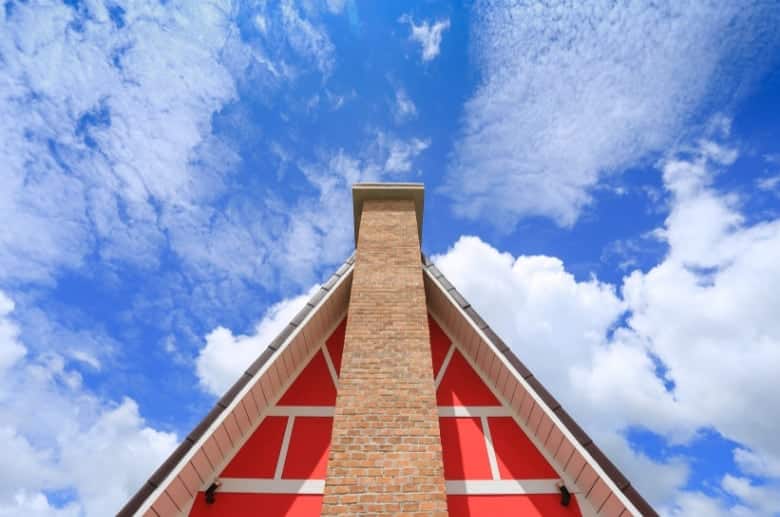
Masonry chimneys offer a classic and timeless aesthetic appeal. They add a touch of traditional charm and can enhance the overall visual appeal of your home.
Metal chimneys provide a modern, sleek appearance that complements contemporary architectural styles. They offer a clean and streamlined look.
Heat Retention
Masonry chimneys have excellent heat retention properties. The dense construction materials used in masonry can retain heat for longer, allowing for efficient and consistent heat distribution.
Metal chimneys may not retain heat as effectively as masonry chimneys. They can cool down more quickly, potentially leading to some heat loss.
Maintenance
Masonry chimneys generally require less maintenance over time. Yearly inspections and cleaning are recommended, but they are less prone to damage and deterioration compared to metal chimneys.
Metal chimneys may require frequent maintenance and inspections to check for corrosion, rust, or damage. They may need periodic painting or coating to protect against weather elements.
——
Do You Need to Hire Chimney & Fireplace Expert?
Get free quotes from qualified experts near you. No commitment required!
——
Suitability
Masonry chimneys are well-suited for homes prioritizing traditional aesthetics, long-term durability, and heat retention. They are a popular choice for larger or custom-built homes.
Metal chimneys are versatile and suitable for a wide range of homes. They work well for modern architectural styles, smaller homes, or situations where lightweight construction is preferred.
Based on the comparison of these features:
- If cost and ease of installation are significant factors and you are willing to invest in long-term maintenance, a metal chimney might be the more cost-effective choice.
- If durability, heat retention, and timeless aesthetics are important to you and you are willing to bear the higher initial costs, a masonry chimney could be the preferred option.
Many homeowners make a common mistake when deciding between a masonry chimney and a metal one. The cost! While metal chimneys may be cheaper initially, you have to factor in the cost of maintenance and repairs over time.
Ultimately, the decision between a masonry chimney and a metal chimney depends on your specific preferences, budget, and the architectural style of your home.
The Winner
To summarize, here are the pros and cons of masonry chimney vs metal chimney.
Masonry chimneys:
- Pros: Traditional, aesthetically appealing, durable, long-lasting, and suitable for most homes.
- Cons: Expensive, requires skilled installation and maintenance, prone to cracking and deterioration over time, poor insulation performance.
Metal chimneys:
- Pros: Sleek and modern, cost less to install, easy to maintain, resistant to weathering and corrosion, good insulation performance.
- Cons: Less traditional and may not fit all aesthetic preferences, may require professional installation, and may not be suitable for all homes.
Choosing between a masonry and a metal chimney depends on your specific needs and priorities. Whatever you choose, consider each option’s long-term costs and benefits to ensure that you make the best choice for your home and your budget.

